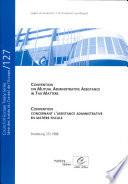
Trouver votre ebook...

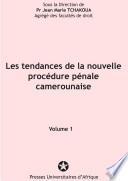
Cameroon criminal procedure code and international criminal law
Nombre de pages: 396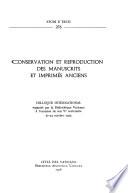
Conservation et reproduction des manuscrits et imprimés anciens
Auteure: Biblioteca Apostolica Vaticana
Nombre de pages: 384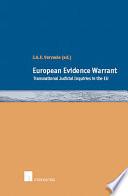
European Evidence Warrant
Auteure: John A. E. Vervaele
Nombre de pages: 331The transnational gathering and use of criminal evidence is a complex and sensitive matter that affects basic principles inherent in national criminal justice systems. Replacing the mutual assistance regime (letters rogatory) by a mutual recognition regime intends to facilitate the admissibility of evidence obtained from the territory of another Member State. How much harmonization of criminal procedure is needed to guarantee the free movement of criminal evidence in the EU? Do we have to develop common procedural safeguards in the EU, or can we build in human rights clauses or procedural public order clauses by which respect for fundamental rights can be a ground for the non-recognition, non-execution or postponement of the order from the issuing state? John Vervaele is Professor in Economic and Financial Criminal Law at the University of Utrecht and Professor in European Criminal Law at the College of Europe of Bruges. The main topics in his research field are: enforcement of Union law; standards of due law, procedural safeguards and human rights; criminal law and procedure an regional integration; comparative economic and financial criminal law. He has realized a lot of...
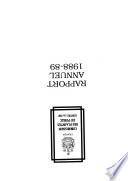
Annual Report
Auteure: Royal Canadian Mounted Police. Public Complaints Commission
Nombre de pages: 260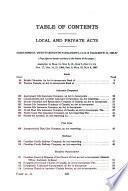
Acts of the Parliament of Canada
Auteure: Canada
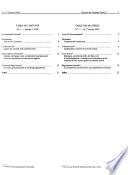
The Canada Gazette
Auteure: Canada
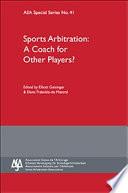
Sports Arbitration: A Coach for Other Players - ASA Special Series No. 41
Auteure: Elliott Geisinger , Elena Trabaldo – De Mestral
Nombre de pages: 372Sports Arbitration: A Coach for Other Players? is not about sports arbitration. The reader may thus ask: Well, what is it about? Arbitration can take inspiration from other human activities, for instance sports. Does it follow that arbitration in general can take inspiration from sports arbitration? Can sports arbitration serve as an example, be it for better or worse? And if so, what are the limits of this? These questions are highly topical in today's world of arbitration. Faced with the increased duration and costs of arbitral proceedings, and with the perception that litigators instead of business people have taken over the process, more and more users are calling for a return to fast, inexpensive forms of dispute resolution that are conducted by persons of the trade. This has resulted in a series of initiatives to introduce trade-specific forms of dispute resolution based on fast-track arbitration proceedings in a wide range of business sectors.
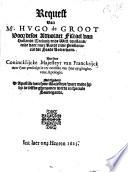
Request Aen syne Coninckl. Maj. van Franckrijck over syne proscriptie ter oorsake van syne uytgheghevene Apologie
Auteure: Hugo Grotius
Nombre de pages: 22![Concept Request voor de Borgers van de drie overheerde Provintien [Gelderland, Utrecht and Overyssel], aan d'Edele Mogende Heeren Staaten](https://cdn1.ebooks-gratuits.club/images/libro/concept-request-voor-de-borgers-van-de-drie-overheerde-provintien-gelderland-utrecht-and-overyssel-aan-d-edele-mogende-heeren-staaten-id-4rAUXIsh33UC.jpg)
Concept Request voor de Borgers van de drie overheerde Provintien [Gelderland, Utrecht and Overyssel], aan d'Edele Mogende Heeren Staaten
Auteure: Staten Generaal (netherlands United Provinces. 1581-1795.)
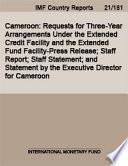
Cameroon: Requests for Three-Year Arrangements Under the Extended Credit Facility and the Extended Fund Facility-Press Release; Staff Report; Staff Statement; and Statement by the Executive Director for Cameroon
Auteure: International Monetary , International Monetary Fund. African Dept.
Nombre de pages: 134Cameroon, the largest economy in the Central African Economic and Monetary Union (CEMAC), continues to face the repercussions of the COVID-19 pandemic. Since the onset of the pandemic, the IMF’s Executive Board has approved two disbursements under the Rapid Credit Facility (RCF) totaling SDR 276 million, about US$ 382 million or 100 percent of Cameroon’s quota. Cameroon’s last arrangement under the Extended Credit Facility (ECF) ended in September 2020, without completion of the sixth and final review. The authorities have requested new arrangements from the IMF to help maintain external sustainability, implement their ambitious reform agenda—laid out in the National Development Strategy for 2020-30 (SND30)—and catalyze financial support from other donors.
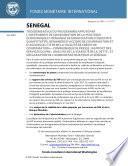
Senegal: Third Review Under the Policy Coordination Instrument and Request for Modification of Quantitative Targets, and Requests for a Stand-By Arrangement and an Arrangement Under the Standby Credit Facility-Press Release; Staff Report; and Statement by the Executive Director for Senegal
Auteure: International Monetary , International Monetary Fund. African Dept.
Nombre de pages: 116The macroeconomic outlook has worsened amid a second wave of the COVID-19 pandemic, higher commodity prices and social unrest, rooted in widening inequality and a lack of opportunities for the youth. The COVID-19 vaccination campaign was launched in February but has so far covered less than 5 percent of Senegal’s population. The President announced in early April an emergency program for youth employment and economic insertion amounting to 3 percent of GDP, spread evenly over 2021–23.
![Lettre ... à M. le Comte Decazes [requesting permission to return to France].](https://cdn1.ebooks-gratuits.club/images/libro/lettre-a-m-le-comte-decazes-requesting-permission-to-return-to-france-id-lrBjAAAAcAAJ.jpg)
Lettre ... à M. le Comte Decazes [requesting permission to return to France].
Auteure: Charles Théodore Antoine Palamède Félix De Forbin-janson (count.)
Nombre de pages: 84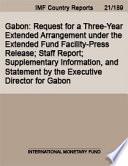
Gabon: Request for a Three-Year Extended Arrangement under the Extended Fund Facility-Press Release; Staff Report; Supplementary Information, and Statement by the Executive Director for Gabon
Auteure: International Monetary Fund. African Dept.
Nombre de pages: 143The Gabonese economy was gradually recovering from the 2014 oil price shock when it was hit by the Covid-19 pandemic. Decisive confinement measures have helped save lives, but the pandemic and the fall in oil prices have severely hit the economy, increasing unemployment and poverty. With a weak economy and increased COVID-19 related spending, the fiscal deficit has widened, with a sharp increase in public debt. Emergency financing from the IMF through the Rapid Financing Instrument (US$299.61 million) helped meet urgent balance of payment needs in 2020. Growth is expected to resume in 2021 but the pandemic has made the economic outlook very challenging and generated sizable financing needs over the medium term.
![Offres de la Reine Mère, au Roy, sur sa Resolution. [Requesting to be allowed to return to Paris for Parliament to decide between her and Cardinal de Richelieu.]](https://cdn1.ebooks-gratuits.club/images/libro/offres-de-la-reine-mere-au-roy-sur-sa-resolution-requesting-to-be-allowed-to-return-to-paris-for-parliament-to-decide-between-her-and-cardinal-de-richelieu-id-0C10ZVPgrIcC.jpg)
Offres de la Reine Mère, au Roy, sur sa Resolution. [Requesting to be allowed to return to Paris for Parliament to decide between her and Cardinal de Richelieu.]
Nombre de pages: 14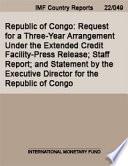
Republic of Congo: Request for a Three-Year Arrangement Under the Extended Credit Facility-Press Release; Staff Report; and Statement by the Executive Director for the Republic of Congo
Auteure: International Monetary , International Monetary Fund. African Dept.
Nombre de pages: 124A new wave of the COVID-19 pandemic is creating headwinds for the nascent economic recovery from the deep recession spurred by the pandemic’s onset and related oil price shocks. Over the medium term, reforms supporting improved governance, economic diversification, and resilience will help confront challenges from climate change, and the global transition to low-carbon economies—gradually resulting in improved incomes, job creation, inequality, and exit from fragility. In the near term, fiscal space to address these challenges is limited. Although debt sustainability was recently restored, large liquidity risks and vulnerabilities remain. Due to arrears and on-going negotiations with an external commercial creditor, debt is classified as “in distress”. The recent AIV consultation concluded on September 24, 2021.
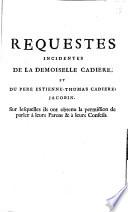
Requests Incidents De La Demoiselle Cadiere, Et Du Pere Estienne-Thomas Cadiere, Jacobin, Sur lequelles ils ont obtenu la permission de parler à leurs Parens & à leurs Conseils
Auteure: Jean-baptiste Chaudon
Nombre de pages: 16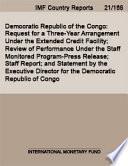
Democratic Republic of the Congo: Request for a Three-Year Arrangement Under the Extended Credit Facility; Review of Performance Under the Staff Monitored Program-Press Release; Staff Report; and Statement by the Executive Director for the Democratic Republic of Congo
Auteure: International Monetary Fund. African Dept.
Nombre de pages: 117The Democratic Republic of the Congo (DRC) is a fragile state and vulnerable to recurrent shocks. Relations with the Fund have been quite active since early 2019, with a Staff Monitored Program (SMP) coupled with a Rapid Credit Facility (RCF) disbursement in December 2019 and a second RCF disbursement in April 2020 to respond to the COVID-19 crisis. Economic activity decelerated sharply in 2020 because of the crisis and reserves decreased to less than two weeks of imports. President Tshisekedi requested a three-year Extended Credit Facility (ECF) arrangement to support his medium-term reform program.
![Lettre de Monseigneur le Prince à la Royne. [Requesting her to Summon the États-Généraux for redress of grievances. Dated Mezières, 18 Feb. 1614. With two additional letters of the same date, by henry and by the Duke de Nevers.]](https://cdn1.ebooks-gratuits.club/images/libro/lettre-de-monseigneur-le-prince-a-la-royne-requesting-her-to-summon-the-etats-generaux-for-redress-of-grievances-dated-mezieres-18-feb-1614-with-two-additional-letters-of-the-same-date-by-henry-and-by-id-hIlmAAAAcAAJ.jpg)
Lettre de Monseigneur le Prince à la Royne. [Requesting her to Summon the États-Généraux for redress of grievances. Dated Mezières, 18 Feb. 1614. With two additional letters of the same date, by henry and by the Duke de Nevers.]
Nombre de pages: 16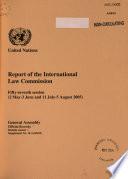
Official Records
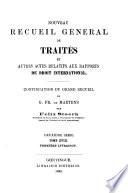
Nouveau recueil général de traités et autres actes relatifs aux rapports de droit international
Auteure: Georg Friedrich Martens

Comment Vous Procurer Les Documents Qui Vous Manquent
Auteure: Anne Piternick , National Research Council Canada
Nombre de pages: 105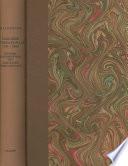
Pasicrisie Internationale 1794-1900
Auteure: Henri La Fontaine
Nombre de pages: 698When the United Nations undertook the publication of the Reports of International Arbitral Awards, the 'Pasicrisie internationale' was identified as one of the rare truly general collections of international case law in existence. In fact, in deciding to publish the arbitration clauses and arbitral awards from 1794 to 1900, Henri La Fontaine was doing pioneering work, foreshadowing the famous Reports by half a century. As we near the end of the century, the 'Pasicrisie internationale' remains just as pertinent as it was when first published in 1902. This collection of arbitral awards, with its modest appearance, has certainly contributed more to the development of international arbitration case law than any number of lyrical speeches advocating peace through law. First edition printed in 1902 by Stämpfli, Bern. Lorsque l'Organisation des Nations Unies entreprit la publication de son Recueil des sentences arbitrales, elle identifia la Pasicrisie internationale comme constituant l'une des rares véritables collections générales de jurisprudence internationale préexistantes. De fait, en décidant de rassembler les clauses compromissoires et les sentences arbitrales de 1794...
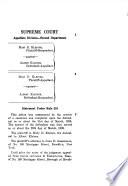
Journal; mémoires de la vie littéraire
Auteure: Edmond De Goncourt , Jules De Goncourt
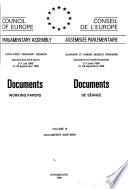
Documents, Working Papers - Council of Europe, Parliamentary Assembly
Auteure: Council Of Europe. Parliamentary Assembly
Nombre de pages: 690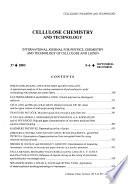
Cellulose Chemistry and Technology
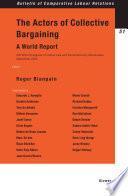
The Actors of Collective Bargaining
Auteure: Eduardo J. Ameglio
Nombre de pages: 366No one denies that the institution of collective bargaining between workers and employers has been a powerful tool for social dialogue. Without our history of effective collective bargaining there would be no mutual understanding, no industrial peace, no constructive cooperation between social partners. Yet there is a feeling today that this history has drawn to a close; that our post-industrial world demands something different, something our tradition of collective bargaining and collective agreements cannot give us. What information and insight can we gather to verify or challenge this feeling? This was the first major question addressed by the distinguished delegates to the twenty-seventh World Congress of Labour and Social Security Law held at Montevideo, 2'5 September 2003. The aim of the conference was to discover current problems regarding the existing structures and functions of collective bargaining in industrialized countries today'problems readily identifiable in the context of economic globalization, falling union density, the increase in atypical and knowledge-based workers, and the 'tertiarization' or declining economic importance of manufacturing-based industry....
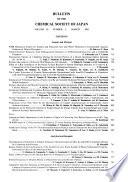
Bulletin of the Chemical Society of Japan
Auteure: Nihon Kagakkai
Nombre de pages: 1118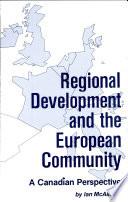
Regional Development and the European Community
Auteure: Ian Mcallister , Institute For Research On Public Policy
Nombre de pages: 268
Monthly Statistics, Income Security Programs
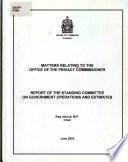
Matters Relating to the Office of the Privacy Commissioner
Auteure: Canada. Parliament. House Of Commons. Standing Committee On Government Operations And Estimates , Reg Alcock
Nombre de pages: 42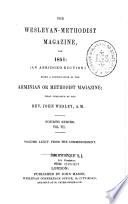
Wesleyan Methodist magazine for 1851
Nombre de pages: 727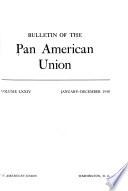
Bulletin of the Pan American Union
Auteure: Pan American Union
Nombre de pages: 954Plus d'informations